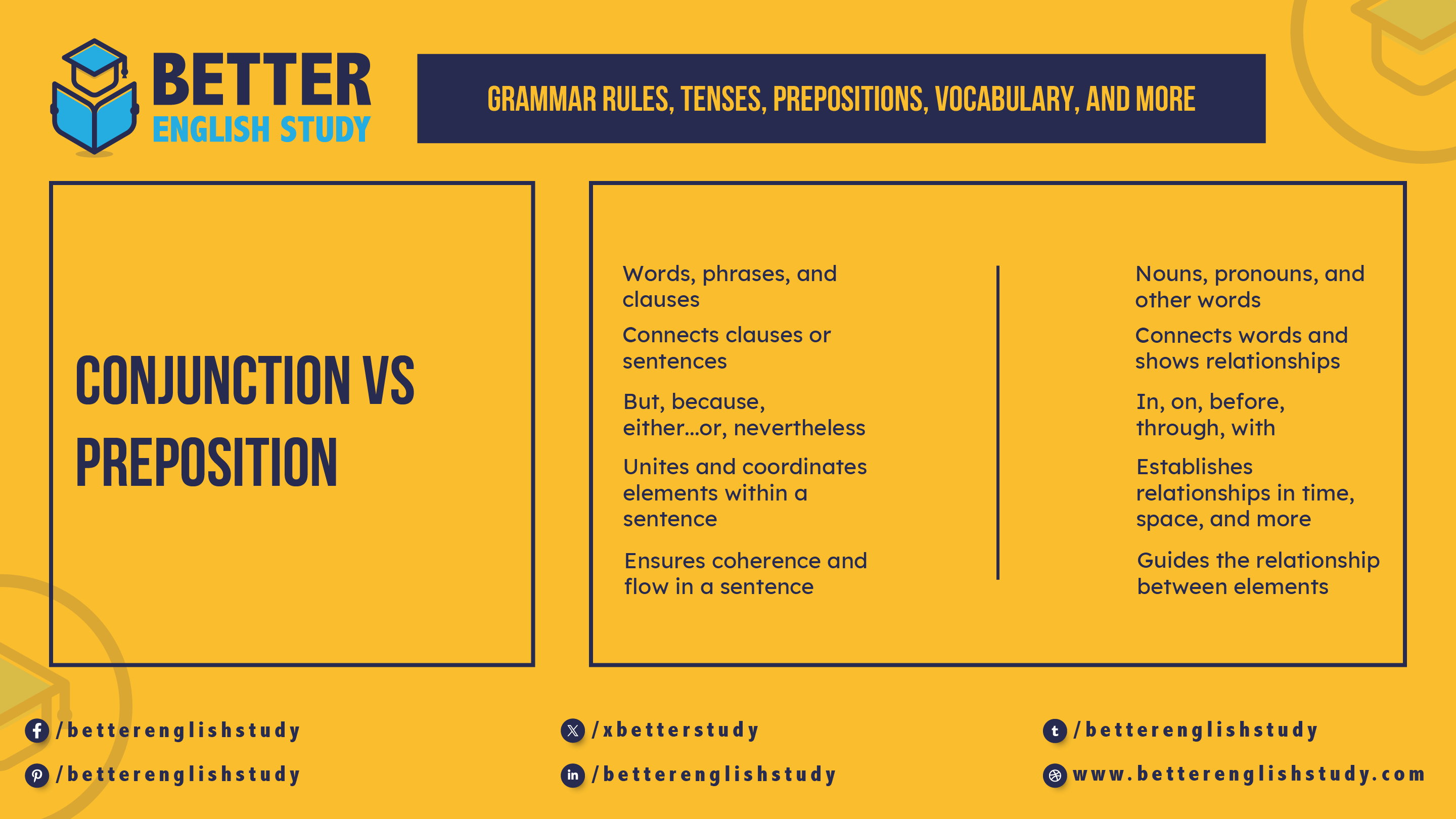Conjunction vs Preposition: Understanding the Differences
Learning a new language can be like exploring a maze, and in the labyrinth of English, understanding the difference between conjunctions and prepositions is crucial. These connecting words play a significant role in constructing meaningful sentences. In this article, we will unravel the mysteries of conjunctions and prepositions, providing clear explanations and examples to guide …

